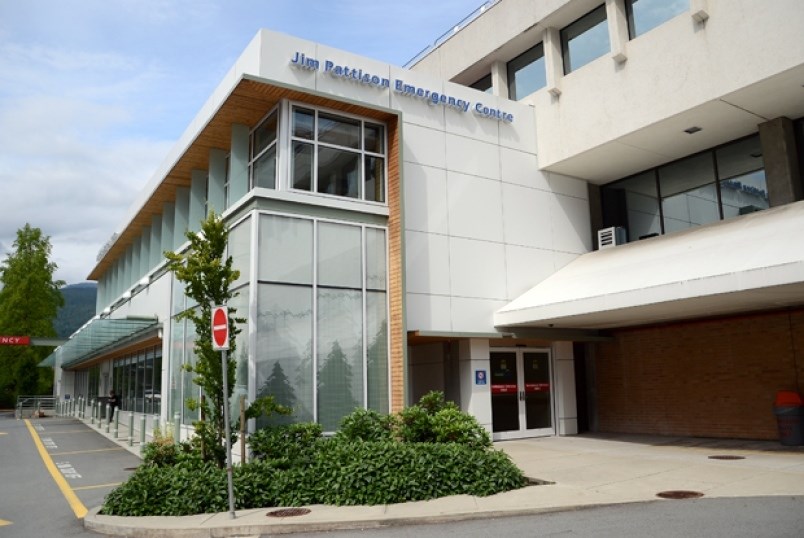Nurses working at Lions Gate Hospital’s emergency department, where a woman recently died while waiting for a bed on a stretcher, have been left “absolutely devastated” and “traumatized” by the incident, according to the BC Nurses Union.
Adriane Gear, vice-president of the nurses union, said she met with nurses who were working in the short-staffed ER when the death occurred.
“From their perspective, this is one of those situations that could have been prevented,” said Gear. “The nurses believe there’s a direct correlation between not having enough staff and not being able to adequately monitor this patient.”
An internal review by Vancouver Coastal Health is now underway to determine exactly what happened in the case of an older woman who died after being treated for two days on a stretcher in the emergency department’s waiting room, because no hospital beds were available.
Woman waited on stretcher
The Ministry of Health confirmed the woman was admitted to the ER on July 9 or July 10 but was kept on a stretcher in the waiting room because no beds were available, either in the ER or other hospital wards.
Blood work and two diagnostic tests were ordered and the patient was seen by both an emergency room physician and another specialist doctor, who determined her condition was stable, according to the ministry.
However, sometime on July 11 the woman was found unresponsive by staff and could not be resuscitated.
Gear said nurses believe short-staffing in the ER was a factor in nurses not being able to check on the woman often enough to detect early signs of her deteriorating condition.
“The nurses believe they were not able to meet their professional standards and care requirements for this patient solely because there was literally not enough of them,” said Gear.
Chronic understaffing a factor: nurses
The nurses union has previously raised concerns about the number of nurses who have quit their jobs at Lions Gate ER, citing burnout and chronic understaffing.
Currently “the department has over 30 vacancies,” for nursing positions, said Gear. “That is a significant vacancy rate.”
Gear said the health authority has attempted to fill gaps by redeploying nurses from other hospital wards and bringing in temporary replacements, but not all of those nurses have specialized ER certification, she said, putting pressure on the regular staff.
“They’ve been worried that something like this was going to happen,” she said. “It’s everyone’s greatest fear. People just feel so badly for this family.”
North Vancouver-Lonsdale MLA Bowinn Ma said she was “extremely alarmed” to learn of the woman’s death in the emergency department and spoke to Health Minister Adrian Dix about it.
In an interview with the North Shore News on Monday, Dix said the woman had been receiving care from doctors and was being “regularly monitored” by staff, as well as having family present for much of her time waiting on the stretcher. “There was substantial care provided,” he said, but added the woman’s condition quickly deteriorated.
He added there was no room in the hospital to move the woman to a regular bed. “It’s not ideal,” he said.
Dix said the situation in emergency departments is also affected by the situation on other hospital wards, which in turn is impacted by the situation in long-term care and by the availability of primary care.
“All these issues are linked,” he said.
Pressures on staff increasing, says Dix
Pressures on health-care staff have been increasing, said Dix, despite attempts by the government to hire more staff.
“We have an aging society and [staff] are exhausted after two and a half years [of the pandemic],” said Dix.
“Our nurses and our doctors have just been flat out.”
The number of the most serious calls for ambulance paramedics has “increased very significantly,” he said.
The health-care workforce is also aging, said Dix, and hiring replacements remains a challenge.
“If you’re a nurse at LGH, I get that it’s just brutal at times right now. You’re dealing with it every day and you have been for a while.”
Dix said current absences of staff who are sick with COVID-19 has also added to the problem. On a typical week, about 8,000 health-care workers will call in sick for at least one day provincewide, he said, but during the week the woman was at Lions Gate, that number was almost double.
Vancouver Coastal Health administrators have met with the family of the woman who died, said Dix. He added the family also has the option of requesting a second, independent review of the situation.




